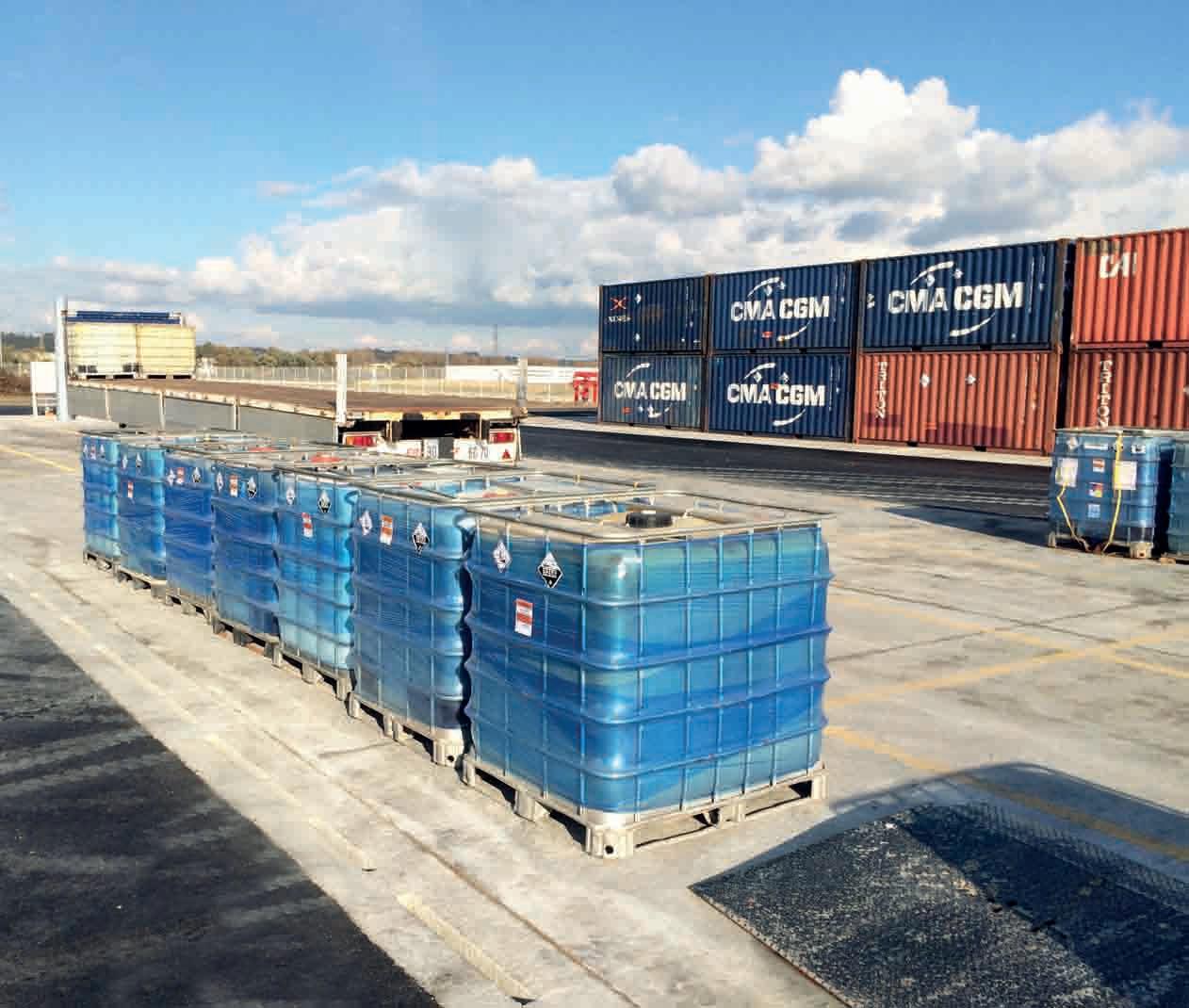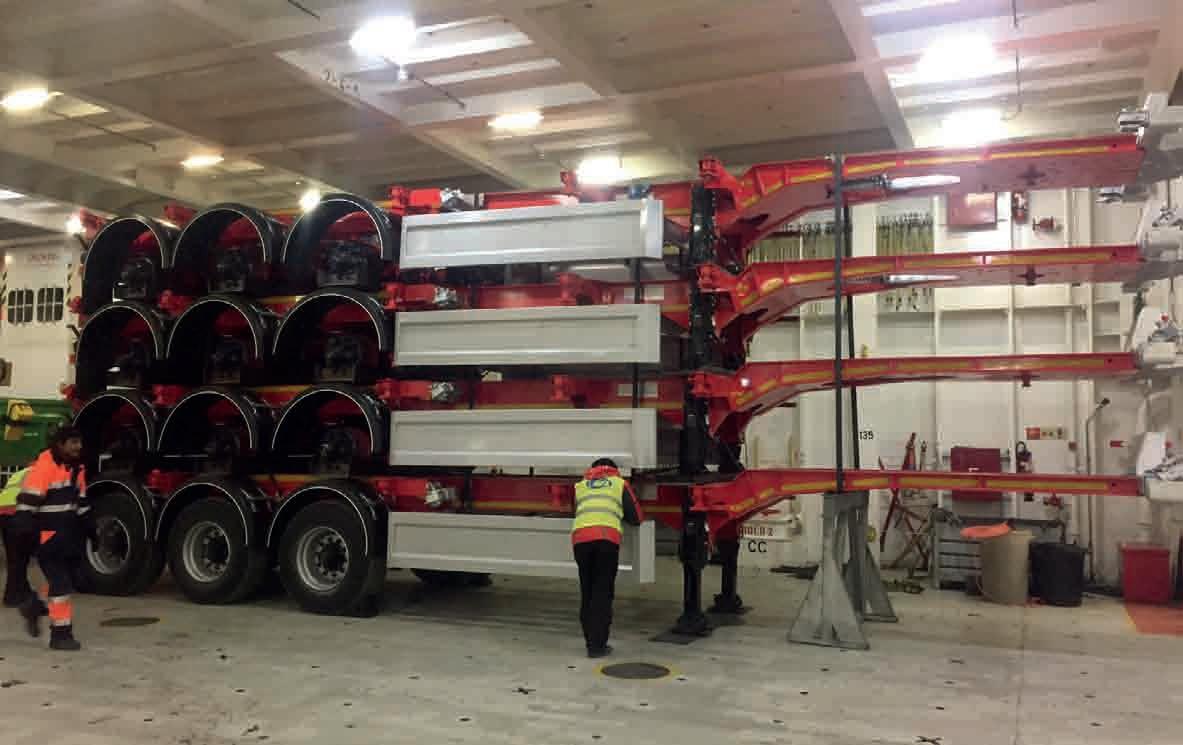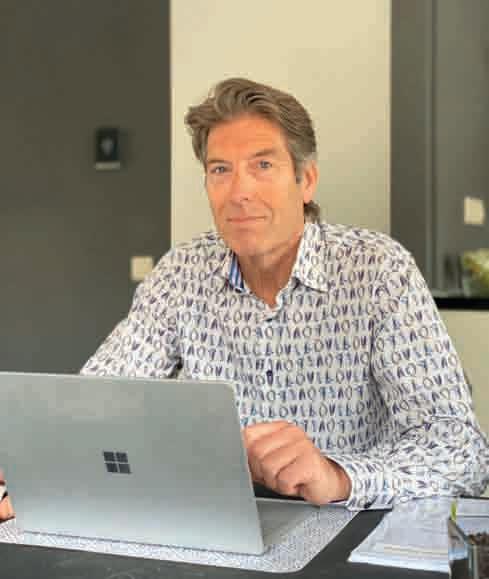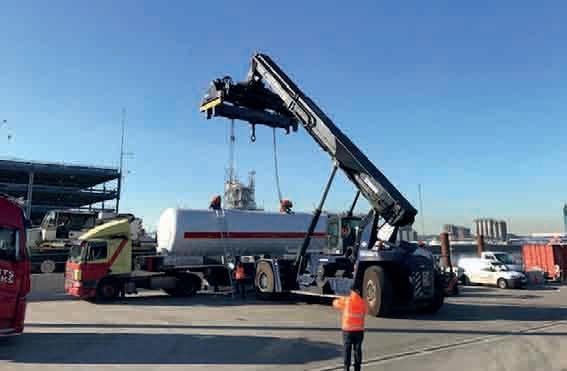
5 minute read
Forwarding a niche product
LIQUID POLLUTIVE WASTE IS A NICHE PRODUCT.
All photos courtesy of S.T.T. Forwarding
Even today, with everyone dealing with uncertain perspectives caused by COVID-19 and low oil prices, business in the North Sea Port continues as usual, albeit on a lower scale. Ships still sail in and out for loading and unloading cargo, and office operations related to these activities are still ongoing as well, but with unusual restrictions such as fulltime working from home. Remko van Reems, Commercial Manager of S.T.T. Forwarding, is no exception here, and we have a word with him by telephone about this young company.
FROM SMALL TO LARGE, S.T.T. FORWARDING TRANSPORTS EVERYTHING WITH WHEELS.

MR VAN REEMS, COMMERCIAL MANAGER AT S.T.T. FORWARDING: “WORKING FROM HOME IS FEASIBLE OF COURSE, BUT I MISS THE VALUABLE INTERACTION AT THE OFFICE AND WITH THE MARKET.”

“It is certainly not business as usual”, he says. “Working from home is feasible of course, but I miss the valuable interaction at the office and with the market, where I notice a lack of initiative because of the effects on the market. Also, as most people are working from home, they are more or less in a restricted mode, though everyone is trying to make the best out of it.”
2016 S.T.T. Forwarding originates from April 2016, with Mr Van Reems acting as Commercial Manager from the start. He explains, “S.T.T. Forwarding is the natural predecessor of the company I owned from 2003 until early 2016.” S.T.T. is a group of maritime companies managed by Marijn van Nispen and until 2016, it did not have a logistics branch. “Marijn and I have known each other for many years, and we did a large project together in 2010. A shipment with 300 containers of waste had to be transported from Ecuador to France for further processing. Marijn has a lot of knowledge in waste and I know the logistics business, so together we successfully took care of this assignment. In 2015, the same company was looking for a reliable partner to take care of a number of smaller and larger waste shipments, and Marijn decided to found S.T.T. Forwarding to be able to act as forwarder for these shipments. He asked me to join the company.”
Niche product The type of waste that S.T.T Forwarding deals with is, according to Mr Van Reems, a true niche product with relatively small quantities. “The waste we take care of is often highly pollutive dry and liquid waste goods from the heavy industry such as refineries and process industry. Most of it is collected and shipped in containers, in order to avoid spillage and to be able to keep good control of it. For each transport, our customer has someone on site both upon leave and upon arrival of the goods to check if everything takes place as desired and required. Trust is very important, and our customers must rely on us and our capabilities in taking care of the transport of their waste safely, securely, and according to the ample strict local, national, and international rules.” Another aspect in this kind of transport is time, according to Mr Van Reems. “Because of the strict rules
THE COMPANY ALSO ARRANGES TRANSPORT OF OTHER PRODUCTS, RANGING FROM HERBS AND INTESTINES TO MACHINERY AND METALS.


and many permits required for each country that the shipment has to pass through (this also counts for the territorial waters of these countries), it can take up to nine months after our first price quotation until a transport actually takes place. This means that it is very difficult to make predictions for this type of business.”
Stable basis Apart from waste, S.T.T. Forwarding also arranges the transport of other goods that require a more regular way of doing business. “In our industry, customers tend to be very loyal and when I joined S.T.T. Forwarding, a large number of customers from my former company continued to do business with me. Next to the containerised chemical waste, we also take care of arranging transport of a broad range of Ro-Ro material. From small to large, we transport everything with wheels”, says Mr Van Reems. “For one of our customers we arrange the transport of material bought from auctions from Turkey via Zeebrugge to Africa. Next to Ro-Ro, we also arrange transport of other products, ranging from herbs and intestines to machinery and metals. Arranging transport of this type of goods gives us a stable basis for dealing with ad hoc waste activities” Most of these operational matters are handled by Bas Schelfhorst, who joined S.T.T. Forwarding in the Autumn of 2016.

Face to face With this broad package of goods, no day is the same at S.T.T. Forwarding, which is exactly what Mr Van Reems likes about his job. “In this business, we have to deal with many unsuspected and challenging issues almost every day. I also like the international aspect of our business. I deal with customers from all over the world. And, although with today’s facilities it is not always necessary, I have learned that meeting customers in person is crucial, certainly in the beginning. I therefore travel a lot, for example to attend trade shows and to join trade missions. One should realise that a person you meet at an exhibition for the first time could become a loyal customer many years later. At least, that is what happened several times during my trips. Face to face contact is still very important, and meeting as many people as possible really is a joy to me.”
Closing entry Mr Van Reems mentions another part of his job that he enjoys. “With our business, we are part of the waste management process. We arrange the shipment of waste from producers to companies that take care of recycling or proper processing. While earning a living, we also contribute to a greener world, which I really like. However, looking at this and within today’s perspective, Mr Van Reems sees a big challenge. “The process of recycling starts with the initiative of the waste producer. He decides when it is the best time to recycle. In uncertain times, he will tend to postpone the shipment and recycling of waste as long as possible in order to save money. This way it will become a company’s closing entry, which is bad for business but ultimately for the environment as well.”










